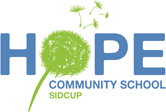Relationships, Sex and Health Education
Today’s children and young people are growing up in an increasingly complex world. This presents many positive and exciting opportunities, but also challenges and risks. In this environment, children need to know how to be safe and healthy, and how to manage their academic, personal and social lives in a positive way. As a result, Relationships Education is statutory in all primary schools.
At Hope, RSE is taught within the PSHE curriculum and includes all topics outlined in government expectations and guidance. While families remain the prime educators in many of these matters, the school has a role to complement and reinforce learning, providing key building blocks for the development of healthy, respectful relationships, focusing on family and friendships, in all contexts, including online.
What will my child be learning about?
All our RSE lessons cover the statutory requirements and have been carefully planned to be age appropriate. They also give the opportunity for children to revisit topics in different year groups. This is important as they will learn more and see things differently as they mature. The lessons are divided up into three overarching themes:
- Families and relationships
- Health and wellbeing
- Safety and the changing body
Below are some of the areas covered within each theme:
Families and relationships
- How to form and maintain friendships
- Importance of family
- Different types of families
- Dealing with problems in friendships
- Online relationships, including staying safe
- Stereotyping
Health and wellbeing
- Mental health and wellbeing
- Healthy eating
- Physical activity
- Dental health
- Importance of sleep
- Medicines
- Tobacco
- Alcohol
- First aid
Safety and the changing body
- Online safety
- Safety around adults
- Understanding their body
- Physical changes during puberty (Year 4 and 5)
- Emotional changes during puberty (Year 4 and 5)
- Sex education (Year 6) – non-statutory
These lessons will give children the opportunity to increase their knowledge and understanding of the topic. They will also be able to explore their feelings and ideas about topics and listen to the views of other people. The overall aim is for children to be able to make their informed choices and decisions.
Will my child have to take part?
With exception of the sex education in year 6, the content outlined above is statutory and therefore all children should be taught it. As with any other subject, teachers will ensure that the lesson is taught in a way which means children of all abilities will learn in a safe environment and in an age-appropriate way.
We have attached the slides that children will be shown for the puberty and sex education topics so that parents may be prepared.
